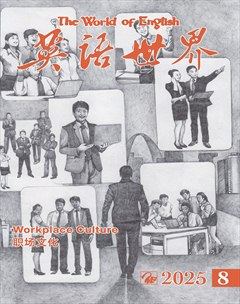The Beatles are back! Strange how the perennial headline always signifies progress in the music business. So it was when Paul McCartney told the BBC about a Fab new song1 made with the help of artificial intelligence. “Kind of scary but exciting,” he said of reuniting his undead band once more. “Because it’s the future.”
“披头士乐队回归!”说来奇怪,这个经久不衰的头条总是标志着音乐产业的进步。这次也不例外:保罗·麦卡特尼向英国广播公司透露,他借助AI制作了一首绝妙的披头士新歌。谈及让这支不朽乐队的成员重聚,他坦言:“整个过程既有些令人不安又让人振奋,因为这就是未来。”
Each of the applications of AI is subtly different, involving varying degrees of creative and mechanical intervention. Which ones you consider “kind of scary” and which ones “exciting” for the future of music depends on what you mean by music.
每种AI工具都呈现出微妙的差异,有的偏重创意发挥,有的更依赖机械干预。对于音乐的未来,哪些AI工具会“有些令人不安”?哪些又会“让人振奋”?答案取决于你对音乐本质的理解。
“People don’t listen to Taylor Swift because of her music,” says Stephen Phillips of Brisbane AI music company Splash. “They do in part, but it’s a lot to do with personality and celebrity and connection to the artist and all that stuff.”
“大家听泰勒·斯威夫特不完全是因为她的音乐。”布里斯班AI音乐公司Splash的负责人斯蒂芬·菲利普斯指出,“音乐肯定是部分原因,但很大程度上还涉及了人格魅力、名人效应、与她的情感联结,诸如此类。”
That’s the stuff AI can’t replace—yet. Splash already has the technology, roughly on par with Google’s MusicLM and Meta’s AudioCraft, to have a crack at2 anything. John Lennon and Taylor Swift together at last? Let them at it, as soon as those artists’ respective IP holders agree to lease their data sets—i.e., their back catalogues3—to train the machine.
这些正是AI无法替代人类的领域——至少目前还是如此。Splash公司已掌握的技术实力与谷歌的MusicLM和“元”公司的AudioCraft旗鼓相当,可以进行任何尝试。想让已故歌手约翰·列侬与泰勒·斯威夫特跨时空对唱?AI完全可以实现,但前提是两位艺人的知识产权持有方同意将作品数据(即曲库资源)出租用于机器学习。
This is the negotiation that industry players such as Phillips are waiting to have. Canadian singer Grimes is a pioneer in this space, having declared her voice open slather4 for creators—as long as they cut her in5 for 50 per cent. “I wanna be software, upload my mind,” she sings on her latest release. “Take all my data, what will you find?”
这正是菲利普斯等业内人士翘首期待的谈判。加拿大歌手格兰姆斯已先行试水,她宣布,若能分得50%的收益,愿意无限制向创作者开放自己声音的使用权。她在新歌中唱道:“多想化作程序,上传我心。读取所有数据,可会窥见真心?”
“If they play this right,” Phillips says of artists and industry more broadly, AI will be “the biggest boon for the recorded music industry since the CD. Especially for that classic [breed of] artists that are not making new music any more. They’ve still got fans, but they’re not releasing anything new. This is a huge opportunity for them.”
菲利普斯谈到艺人和整个音乐产业时表示,“如果使用得当”,那么AI将成为“自CD问世以来唱片业最大的福音,对(那群)不再创作新歌的老牌艺人尤为如此——他们仍有大批乐迷,但又不打算发表新作,AI对他们而言是巨大的机遇”。
While pop’s personalities prevaricate, there’s plenty of hold music6 on tap7. Want quirky, upbeat funk? Want movie scene in a desert with percussion? Want tropical jazz for breakfast? Just type that into one of an exploding legion of AI music generators online and out it comes. Like ChatGPT for your ears, it’s flawed but getting smarter fast.
当流行巨星还在审慎观望,大量由AI创作的通话等待音乐已触手可得。想听俏皮又具动感的放克节奏?渴望茫茫荒漠的电影场景中激荡起鼓点?期待唤醒清晨味蕾的热带爵士?只需在层出不穷的AI音乐在线生成器中选择一个输入需求,旋律即刻流淌出来。如同听觉版的ChatGPT,效果未臻完美,但进化速度惊人。
Most observers agree that AI will soon own this kind of faceless, generic music. That’s no small thing because it’s increasingly what consumers want. The vast majority of streamers aren’t typing artists’ names into apps, they’re searching “lo-fi hip-hop” or “mellow electronic” playlists, often neither knowing nor caring who made it.
多数行业观察人士认同,AI即将主导这种去人格化的通用音乐领域。





